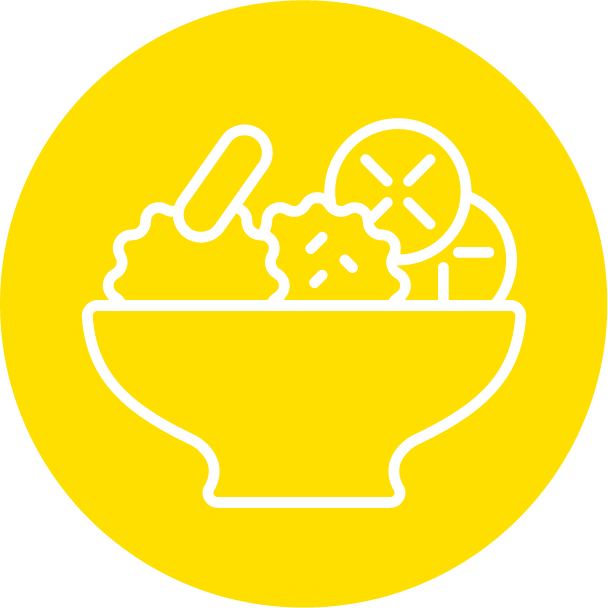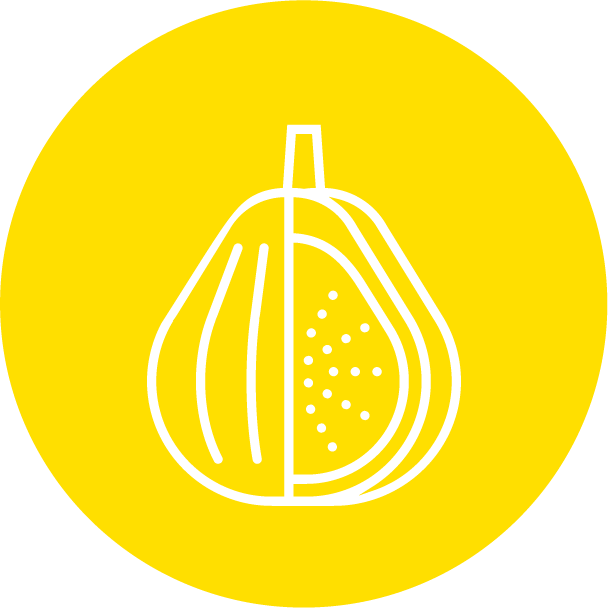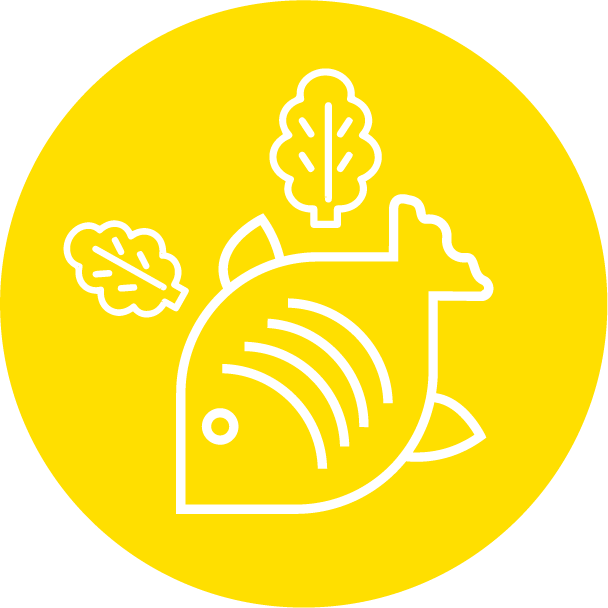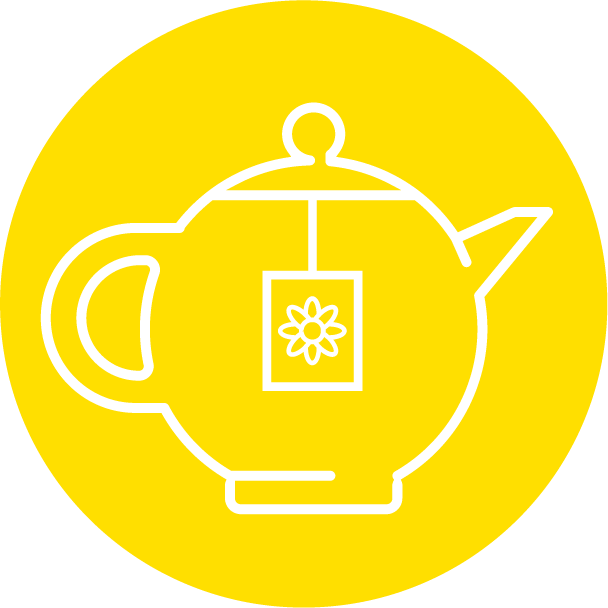
Eat your way to better sleep
Eating and sleeping are inextricably linked physical processes. The food we consume influences how, and when, we sleep.
Equally, our sleep can influence which foods we crave and how hungry we feel.
Energy levels, hormones, and the quality of our sleep are all linked to our nutrition – so ignore your diet at your peril. We spoke to nutritionist, Libby Limon, for some advice on how to best get our diets and sleep cycles working in harmony.
Nutritionist and yoga instructor, Libby Limon, promotes a wholesome, balanced and holistic approach to wellness. Libby advocates that treating your body well, making intelligent choices and paying attention to your individual needs, is the path to good health.
Rest and Digest
The digestive system has a number of stages and processes, which involves a 24-36hr movement through the body in a healthy tract. It includes the breakdown and absorption of food for energy, repair, growth and support for all our metabolic systems – then the disposal of unwanted waste and toxins. As this happens over a 24hr or so period, it’s obvious that much of this happens while we’re asleep.
When we’re awake, we want the first part of this digestive process from our food and digestion, as we want to be able to use the energy and nutrition from the food we eat. When planning your meal times, bear in mind that exercise diverts resources away from the digestive tract, so avoid large meals before a work out. Stress can also have a negative effect on digestion.
Eating more in the earlier parts of the day, and then gradually reducing meal sizes as we move towards sleep time is the most nutritionally beneficial way to eat for most people.
Sleep vs. stimulate
What we eat during the day can influence our sleep. A high sugar or carbohydrate diet is linked to blood sugar imbalances which, in turn, can affect our circadian hormones and quality of sleep.
We also need lots of different nutrients from fats to proteins, vitamins to minerals to help our body produce the right balance of sleep/wake hormones, and to support other sleep enhancing processes such as muscle relaxation.
Here are some of the main culprits:
 Stimulate
Stimulate
Sugar and refined carbohydrates
In most people, a diet high in sugar and refined carbohydrates will stimulate the production of both insulin and cortisol. These hormones create a blood sugar rollercoaster, so are definitely not good foods for sleep!
Read
Caffeine
Caffeine and alcohol are both stimulants, which mean they can be unhelpful if you’re trying to get to sleep. If you’re anxious or jittery, stay away from caffeine altogether from midday, onwards. Some people, however, are genetically fast metabolisers of caffeine - they can sink an espresso before bed and still sleep like a baby. So, don’t follow hard and fast rules. Listen to your body, first and foremost.
Read
Alcohol
Alcohol should be drunk in moderation. It causes blood sugar rebounds and dehydration, both of which can have a negative effect on your quality of sleep. So, lay off those nightcaps!
Read
Sleep 
Almonds and avocados
If you have sleep issues, it might be thanks to a lack of magnesium, a mineral that’s vital for muscle relaxation and the deactivation of adrenaline. 75-90% of the UK population don’t consume the recommended (minimum) daily intake of magnesium through their diet. While it’s in many foods, it is often very difficult to absorb. Avocados are rich in magnesium, while almonds with the brown outer shell removed or white almond butter are nature’s most abundant source of the mineral.
Read
Cherries
Melatonin is our natural sleep hormone. We produce it internally as a result of exposure to daylight, but cherries also contain lots of it. This makes them a great after dinner fruit and a good food to help you sleep.
Read
Spinach, egg whites and turkey
Serotonin (our happy hormone) is a precursor to melatonin, so eating protein rich foods (which help stimulate serotonin production) are a good way to make sure your body is producing enough. Some of the best sources of it – foods like spinach, halibut, egg whites, pork and turkey – are good foods to promote sleep.
Read
Water
Water plays an important part in keeping the body running effectively, so it’s essential to stay hydrated, even while we sleep. Dehydration can cause you to wake up in the night, and if you drink too much before bed, you may wake up needing to visit the bathroom. Drinking water – in moderation – before bed can help you wake up feeling refreshed and rejuvenated.
Read
The fast-ers, and the furious
Ever embarked on a diet plan, only to spend the night tossing and turning, thinking about your next meal? It turns out, some people are genetically wired to go without food, whereas others might end up feeling worse in the long term. Nutritionist Libby Limon, says:
Many of us are designed to go for periods of fasting with actual positive rather than any ill effects. However, if you’re prone to blood sugar highs and lows, fasting can have a very negative effect as low sugar drops, sending the body into a ‘stressed’ state and causing broken sleep or an early wake up.
And the bad news doesn’t end there.
Additionally, 'dieting' or overall calorie restriction generally has a negative effect on sleep.
Also vice versa - if you don’t get at least seven to eight hours of sleep a night, this indicates to the body that there is an energy deficit, which stimulates hunger hormones and can cause cravings and overeating the following day.
So if you’re craving sugary and refined carbohydrates after a poor night’s sleep - it’s your body’s way of trying to re-address a hormonal imbalance. Getting that seven hours’ kip could help stave away the cravings.
Libby Limon's good-night nutrition
So what would Libby recommend for her perfect nutritional 24-hours – for optimum energy during the day, and an easy night’s rest? Click for more tips:
-
Breakfast
I start the day with an organic green tea, this contains a small amount of caffeine with a calming amino acid, to give me and my metabolism a gentle morning boost with a healthy dose of anti-oxidants. Breakfast is egg and avocado on seeded rye toast. This is a combination of complex carbs, protein, healthy fats and fibre, which will see me full till lunch time with a sustained release of energy that won’t spike my blood sugar.
-
Coffee break
Mid-morning I might have matcha green tea latte with almond milk and cinnamon. Again, the green tea is great way to have an energy boost, whilst not overstimulating the system and supporting liver detoxification.
-
Lunchtime
A turkey salad with lots of roast vegetables and a gluten free whole grain such as quinoa or brown rice. The turkey is great source of amino acid pre-cursors for serotonin, while the vegetables fill you up with fibre, and provide vitamins and minerals. Wholegrains provide B vitamins for energy production.
Again, it is blood sugar balanced meal that will make you feel fuller for longer. -
Afternoon snack
As a rule of thumb, snacks are good idea to tide you over if there is a gap of more than 4-5 hours between your main meals. White almond butter with 2 figs will provide you with good source of magnesium. It’s important with snacks as it is with main meals to not have just carbohydrates on their own.
-
Dinner
It’s recommended that you eat nothing major 3-hours before bed – this will help prevent reflux or heartburn and promote healthy digestion. Heavy, rich, fatty foods take longer to digest so can sit in the stomach for longer and cause issues if eaten late at night. Eating right before bed can also affect your body temperature and metabolic rate, causing more brain activity during REM sleep, which can make you feel like you dream more or have a more restless sleep. A balanced dinner will help to ensure your body has the energy it needs for the following day – not to mention, avoiding blood sugar spikes and drops, which can interfere with sleep. I’d recommend Halibut roasted and served with magnesium rich vegetables such as spinach and chard.
-
Dessert
Cherries. l like frozen ones, these are picked in season, are cheaper and easy to store. The melatonin they contain can help you to sleep well.
-
Nightcap
Calming herbal tea such as camomile, lavender and lemon balm, can help you relax and wind down. Ideally drink it 30 minutes before bedtime.






